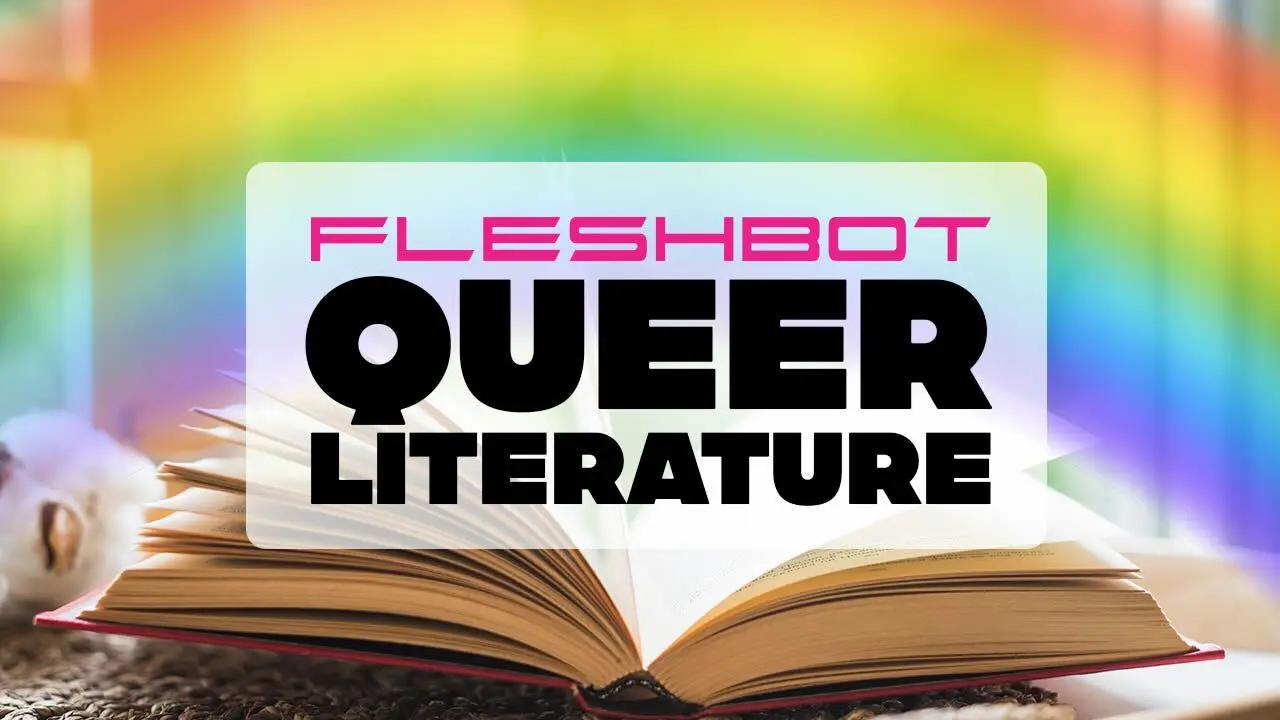
Can queer literature be written by a straight guy? Absolutely. And John Irving's In One Person proves it. Yer boy Hank here is an avid reader, usually with a couple of books going at once. I've become a fan of audiobooks, no longer eschewing them as "not real reading." They may not be "reading" but they're certainly storytelling, and we don't want to denigrate how some, due to disability or simply disinterest, ingest literature. So I have a book going on audio in my car and another hard copy in my hand (giggety!). I recently listened to Irving's 2012 novel, about bisexual coming-of-age story, and I was quite surprised by where it takes the reader.
I've been a big Irving fan for decades, being first introduced to him through the film version of his 1978 novel The World According to Garp starring Robin Williams. The book has an important side character; I can't call her a "minor character" because she has such a huge impact in the book and film. Roberta Muldoon is a transgender former football player played by John Lithgow, who received a Best Supporting Oscar nomination for his portrayal. He brought Roberta sensitively to life at a time when positive trans representation was basically non-existent. And for Irving, a straight man, to write such an inclusive and sensitive character at that time was revolutionary.
I bring this up because Irving, who is decidedly straight and married with children, is known for his characters who walk outside the mainstream, and deals much more deeply with transgender people in a wide variety in In One Person. In fact, sexuality outside the norm is the running theme. The main character and narrator, Bill Abbot, tells us the meandering, funny, and poignant stories of his friends and family and his sexual awakening, spanning over fifty years, from his childhood in the 50's through the 2000s. He discovers early on an attraction to "the wrong sort of person." Actually, he's attracted to many of the wrong sort of person. He has crushes on the town librarian, a woman, as well as his own stepfather and his bully of a wrestling teammate. He steals a female friend's bra to wear in secret at night. And his grandfather, a logger active in the local community theater, is often called upon to play women's roles, regaling and delighting in dressing up as Shakespearean and Ibsen females. He enjoys it a bit too much, if you ask his wife! After her death later in the novel, he takes to wearing her clothes around the house.
Later in his teen years, Bill learns of his librarian's secret, that she used to be "Big Al," the team captain on the private boys' school's wrestling team. And then she (sort of) takes his virginity in the basement of the library. The sexuality, as portrayed by Irving's characters, seems real, tender, and instructive. She is, after all, teaching the young Bill a few things.
Being a bisexual character, Bill grows to encompass and involve himself with a wide swath of all the grey areas of human sexuality, and this is where I feel the novel really shines. First, Bill is not under the fist of contemporary proper word police. The word in his day was "transexual," and that is the word he often uses, even in his later years. When a student of his, a burgeoning young trans girl, calls him on his use of the archaic term as derogatory, he gently presses that it was the word used by his former librarian lover, Miss Frost, and it is the word he often still uses, and no, she doesn't get to police his language. And second, what's great about many of the "sexual suspects," a term first used in ...Garp and now here, is how unsecretive many of them are, even back in the fifties and sixties. It may be rose-tinted glasses, and of course, in his small-town Vermont setting, there are those who find Miss Frost, or Grandpa Harry's cross-dressing, distasteful, but more often than not, they're met with a blasé attitude of "live and let live."
The AIDS crisis, of course, figures prominently in the latter part of the book. Bill has had a lifetime of lovers, male and female, and it's only natural that some of them would succumb to the disease. One of Irving's reasons for including the epidemic was how often he and others didn't learn about a friend's sexuality until they were diagnosed or even dead. And he found that secrecy tragic.
If you're familiar with some of Irving's work, you'll find repeated themes here, familiar old territory he never grows tired of revisiting: wrestling, Vienna, abortions, transexuals, may-December romances, outsiders, prostitutes, speaking German, even Labradors tied to death make an appearance. And let's not forget his beloved bears! But in this novel, "bears" are the hirsute gay male variety. I was quite amused that he managed to work them in!
Looking at the picture of Irving, who entered his 80s, you can see why I'm such a fan. He was always a hot daddy, and continues to be so. And his writing of course! The World According to Garp, A Prayer for Owen Meaney, and The Ciderhouse Rules are still some of my favorite novels. In One Person doesn't quite live up to those early powerhouses, but it makes a significant impact in regards to its frank and real sexuality, unapologetically queer, and wonderfully varied.
Questions? Comments? Email us at [email protected]
Follow us on Twitter and Instagram.